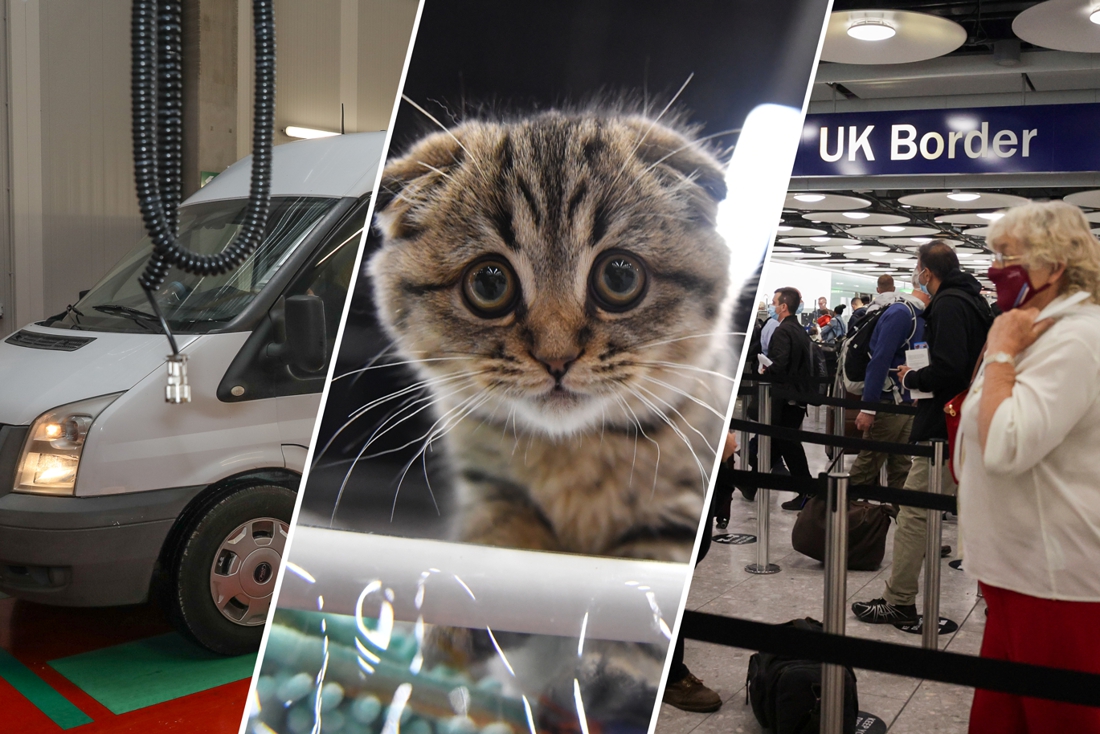Number of corona rules relaxed
On October 1, several corona rules will again be relaxed in Belgium. After a year and a half of closure, discotheques and nightclubs are allowed to reopen.
In addition, the mouth mask may be dropped off in shops, catering establishments or at work from 1 October. Only in the interior areas of public transport, train stations and airports, the mask obligation continues to exist, just like in healthcare institutions, for staff and customers of medical and non-medical contact professions and at all kinds of events with more than 500 people inside, if not in use. making the corona pass. From 1 October, the mouth mask requirement will also disappear for teachers and students in secondary education and teachers in primary education.
© Joris Herregods
–
In principle, the measures apply to the whole country, but some regions can choose not to implement the relaxation yet or to act even more strictly. In Flanders, the mouth mask obligation is disappearing in shops and in the catering industry in any case, but in Brussels mouth masks will remain mandatory for the time being in, for example, the catering industry and businesses. The strict recommendation to telecommute, the restrictions on private meetings and the mandatory closing time of the catering industry will also be maintained in Brussels.
The federal states also get the reins for the Covid Safe Ticket (CST), or the corona pass. The federal government imposes the use of the Covid Safe Ticket for the nightclubs, which can reopen everywhere in the country from October 1, but leaves it to the regions. In Brussels, anyone aged 16 and over must be able to present a CST for leisure activities from October onwards. The control system will be implemented for three months in nightclubs, cafes, restaurants, museums, theatres, cinemas, festivals and sports halls.
The Walloon government has decided to expand the use of the corona pass from mid-October. From then on, everyone older than 16 years of age will have to be able to present a valid CST in the catering industry, in discotheques, at events and in rest and care homes. In places where the Covid Safe Ticket is used, the mouth mask obligation will disappear.
There will also be stricter protocols for ventilation and air quality in nightclubs, but also in cafes, restaurants, fitness centers and indoor sports infrastructure.
Flemish protection mechanism ends
The Flemish protection mechanism for companies that are hindered by the corona crisis will stop from 1 October.
This summer there was still support for some sectors that were closed or suffered loss of turnover, such as hotels, discotheques, dance halls and travel agencies. That support ends at the end of September.
For the third quarter, the companies can still receive an allowance if they can demonstrate that they suffered a loss of more than 60 percent in turnover. The application can be made from 15 October.
End of reduced VAT in catering
 –
–© BELGAIMAGE
–
The reduced VAT in the catering industry will expire on 1 October. The VAT reduction to 6 percent was a support measure that the federal government introduced months ago for the catering industry, which was hit hard by the corona crisis. But it was also intended that it would last until September 30, so that period will not be extended. As a result, VAT rates of 12 and 21 percent will again apply in the catering industry from October.
Civil servants’ wages rise after exceeding the pivot index
In October, civil servants’ wages rose by 2 percent. This is a result of the high inflation, which caused the pivot index to be exceeded. In the private sector, wages rise later.
In August inflation – the rate at which consumer prices rise – accelerated for the seventh month in a row. At 2.73 percent, it was even at the highest level since March 2019. As a result, the pivotal index was exceeded earlier than expected.
Due to the excess, social benefits and pensions were already increased by 2 percent in September. Public sector wages will follow in October.
Those who work privately will have to exercise a little more patience, depending on the collective labor agreement of the sector. Some sectors index wages at a fixed time per year, other sectors adjust wages monthly or quarterly.
If you want to travel to the United Kingdom, you need a passport
 –
–© REUTERS
–
Citizens of the European Union, the European Economic Area (EEA) and Switzerland who want to travel to the United Kingdom will need an international passport from 1 October. An identity card will then no longer suffice, as a result of Brexit. The passport must be valid for the entire duration of your stay in the UK.
There are some exceptions, including those who use or have applied for the EU Settlement Scheme, those who obtained a family permit under the EU Settlement Scheme and frontier workers.
Transitional measure for stricter assessment of car lights expires
 –
–© kvo
–
From 1 October you will no longer receive a warning during the car inspection for certain defects in lights and reflectors, but immediately a red certificate. A transitional measure in force since 1 December 2019 has expired.
The new regulations were imposed by the European Union to increase road safety and are also in line with “vision zero”, the Flemish government’s ambition to have no more road deaths by 2050. The Flemish government and sector federation GOCA Flanders provided for a transition period to give drivers the opportunity to have any defects repaired without the costs of a re-inspection.
Some defects lead to a re-inspection from 1 October. These include, among other things, the tell-tales of the high-beam headlamps or of the rear fog lamps that do not work on the dashboard, the switch of the main lights on the vehicle that does not work properly, a badly mounted number plate lamp, malfunctioning hazard warning lights or defects in operation, the condition and the attachment of, among other things, the daytime running lights, the rear lights, the traffic lights and the third traffic light and the fog lights.
European banks allowed to pay dividend again
Banks in the eurozone will be allowed to pay a dividend again from October if their financial situation allows. The European Central Bank (ECB) announced that it would not extend the corona measure that temporarily banned the payment of dividends and the purchase of own shares. However, banks still have to have their plans approved as “part of normal supervision”. The ECB also calls on banks to remain cautious.
During the corona crisis, banks were asked to keep as much capital as possible as a buffer, in case companies and households were unable to repay their loans. However, this turned out to be not so bad, partly thanks to ample support from governments.
Ban on the breeding and trading of fold-eared cats
 –
–© BELGAIMAGE
–
From 1 October it is prohibited to breed and trade fold cats or fold ear cats.
Fold-eared cats are characterized by the forward folded ears. The best known varieties are the Scottish fold and Highland fold. Those distinctive ears are the result of an abnormality in the cartilage. The osteochondrodysplasia is caused by a mutation in a gene. The cartilage can also be malformed in other places in the cat’s body.
This is very painful for the animals. The symptoms resemble arthritis in which the joints are chronically inflamed. Moving is difficult and painful. In severe cases, the cats become lame. No treatment is possible. “The only way to avoid this condition is to prohibit the breeding of cats that carry the gene,” is the reasoning at the Animal Welfare Service of the Flemish Environment Department.
No new matings have been allowed for some time so that no kittens are born after October 1. Whoever breeds such cats must have their animals spayed or neutered. If you already have a fold cat, you can keep it, but not sell it or give it away. Anyone who can no longer care for the animal can only give it to a recognized cat shelter.
Vatican can only be visited with a valid corona pass
 –
–© EPA-EFE
–
From 1 October, the Vatican will only be accessible to people who can present a valid corona pass. The Holy See previously announced that every resident, employee or visitor to the church must be able to prove that he has been vaccinated against Covid-19, has been declared cured after an infection or has taken a negative test. Among other things, the European corona certificate is accepted, which is also used in Belgium.
The Vatican also announces controls by its own gendarmerie. An exception to the new rules applies at times when believers miss the Vatican and attend liturgical feasts. They are encouraged to follow the hygiene regulations.
The Pontifical Commission for the State of Vatican City, the state’s legislative body, is following Pope Francis’ instructions with the measure to ensure the safety and health of people in the ecclesiastical state.
– .


